Red Easter: how the main Christian holiday was celebrated in the USSR
If religion is opium, then Easter is its superdose, the Soviet government considered, not allowing the people to celebrate the main Christian holiday. Billions of rubles, tons of paper reports and an immeasurable number of man-hours were spent fighting the church in the Union. But as soon as the communist idea failed, cakes and painted eggs immediately got out of hiding…
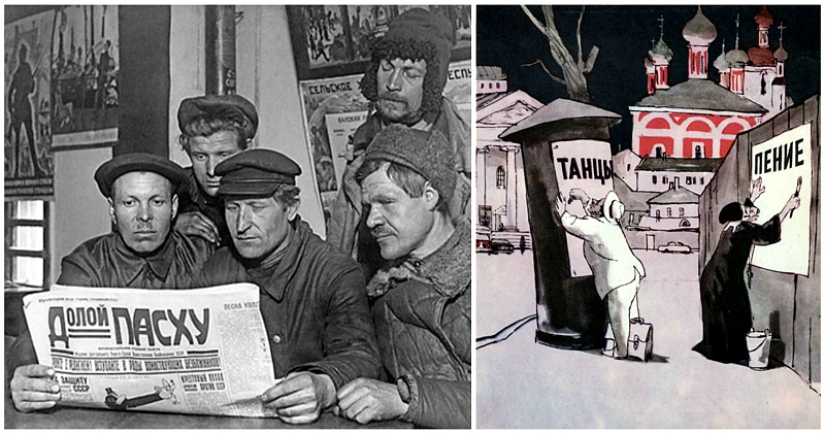
Dancing, stuffed animals, performances
Freedom of anti-religious propaganda was proclaimed in 1929. The churches were taxed; if the community paid it, they added a second, a third… And so on until the burden became unbearable and the temple was closed.
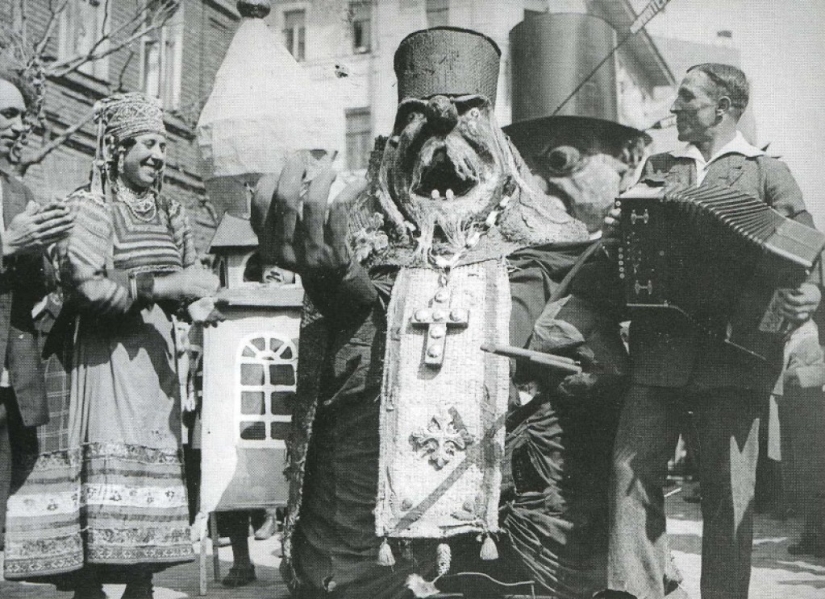
How did you talk
In 1930, the day off due to Easter was moved from Sunday to Thursday, so that the holiday became a working day. When this practice did not take root, the townspeople began to be driven out to Lenin's subbotniks, Sundays and mass processions with effigies of priests, which were then burned.
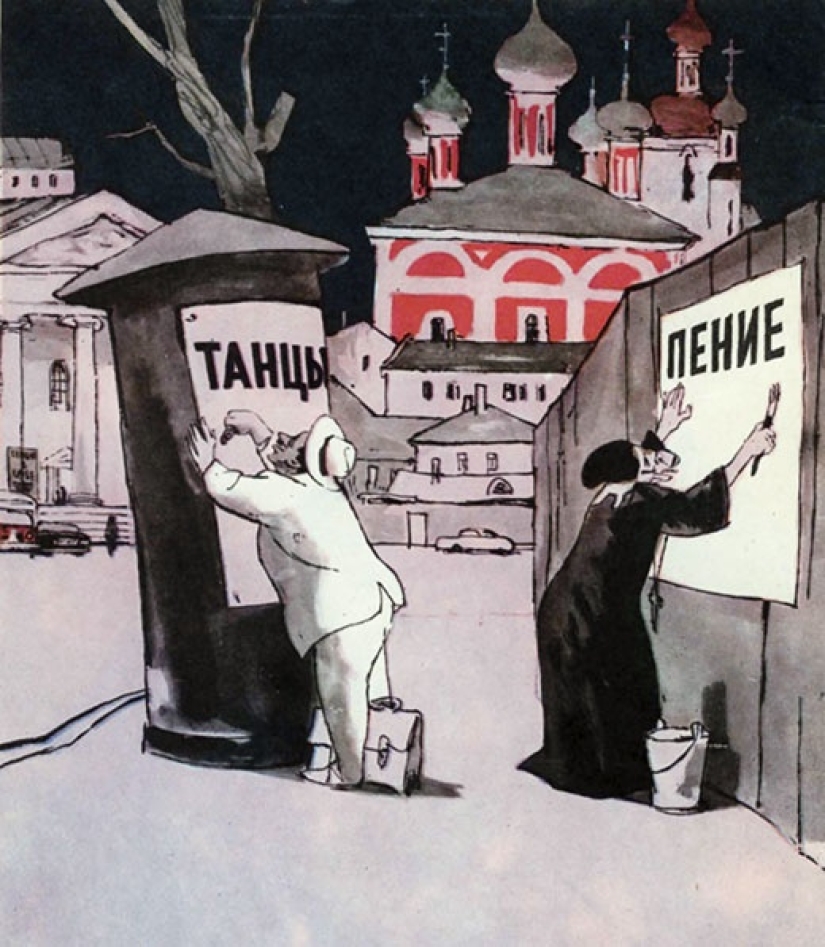
Cartoon "To each his own ..." from the book "Evgeny Shukaev. Cartoons", 1965
According to Stasyuk, anti-Easter lectures were timed to this day: children were told that Easter festivities breed drunkards and hooliganism. Collective farm teams tried to send them to work far away in the field, and children were taken on field trips, for ignoring which parents were called to school. And on Good Friday, a time of deep sorrow for Christians, they liked to arrange dances for schoolchildren.
Own wedding
Immediately after the revolution, the Bolsheviks began a vigorous activity to replace religious holidays and rituals with new, Soviet ones.
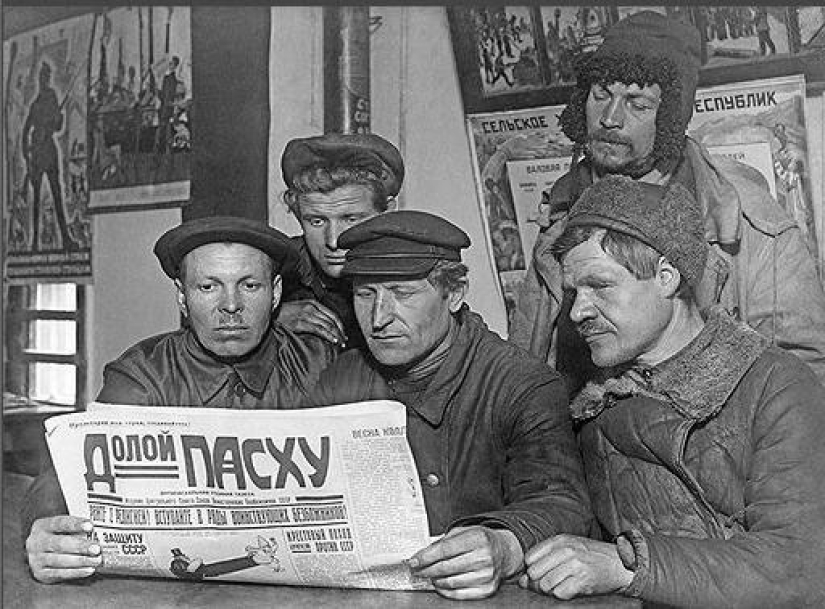
The media fought religion with all the methods available to them
Red Easter, however, existed only in the 20-30s — they were too blatant a parody.
Through the swamps
But the party's anti-religious commission was not going to give up. At the end of the 40s, pre-holiday preparations were still kept secret in families, says historian Pyotr Bondarchuk.
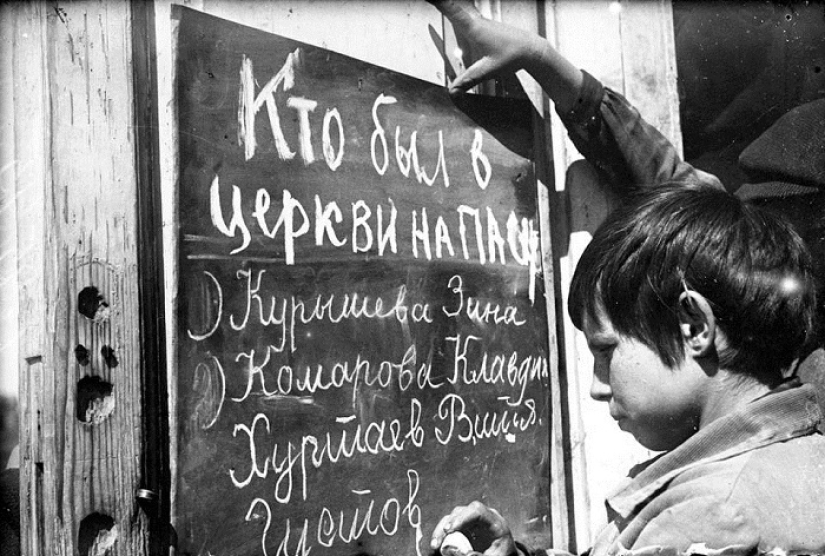
In the 40s and after
A surge of religiosity occurred during the war, and, oddly enough, citizens were almost not persecuted.
Aggressive ridicule and burning of effigies were rejected as too brutal, believers were given a kind of ghetto for quiet celebration of the holiday, and the rest of the citizens were planned to unobtrusively occupy on Easter days.
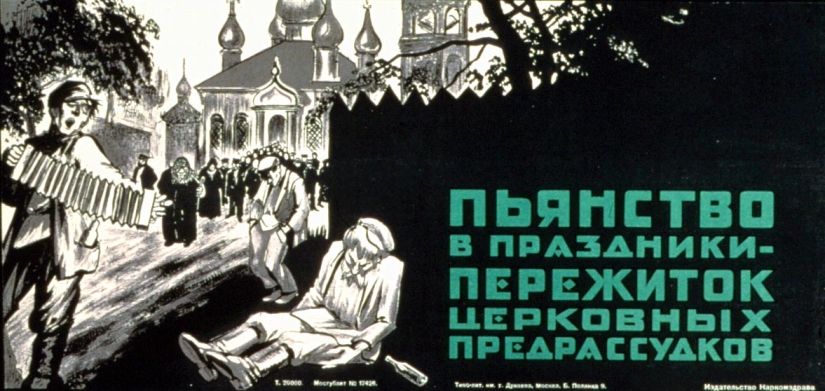
Soviet anti-religious poster
God's Punishment
Pensioner Maria Gutsal groans even 70 years later, remembering how she was "printed" in the school wall newspaper: she went to sanctify the willow, and "good people" reported to whom it was necessary.
On the Monday after Easter, teachers checked the children's hands: if they noticed traces of painted eggs, there were problems.
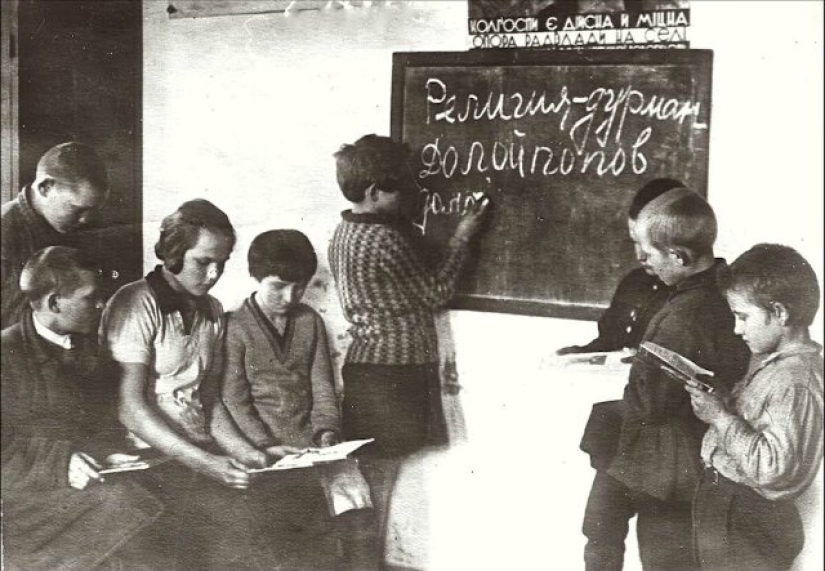
On the alert
The public did not give the believing people peace. Even the Octobrites were instructed to re—educate unconscious relatives, otherwise - reprimands and spoiled characteristics. In order to "stop and eradicate" in time, district committees with party committees sent their raids to all-night vigils in the company of grandmothers.
Barriers of teachers, cordons of Komsomol members, detachments of vigilantes on duty yawned all night under churches, catching pupils and colleagues in crowds.
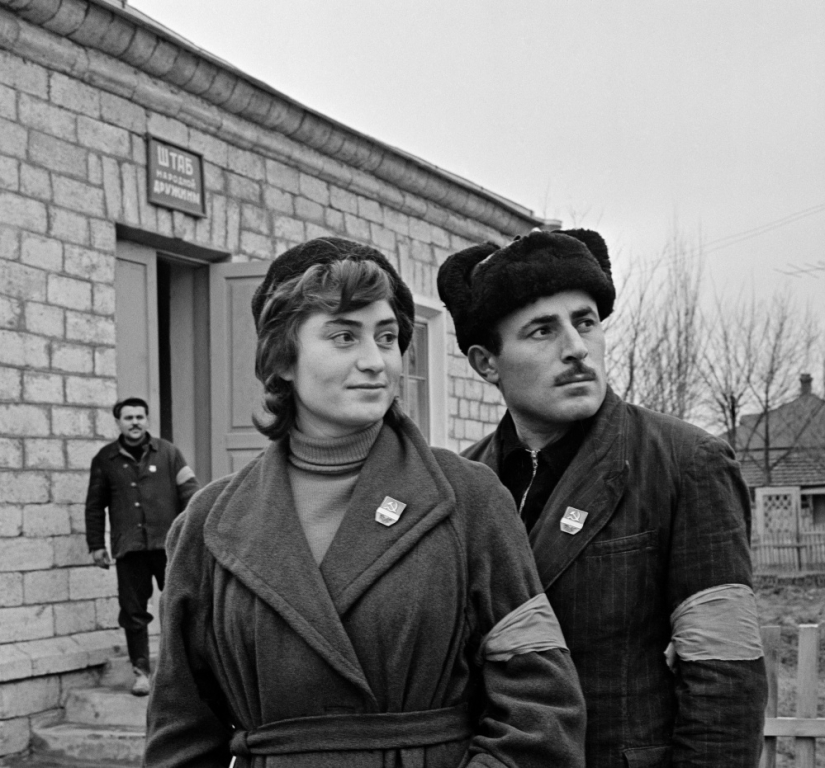
Vigilantes. Caught believers near churches
In order to keep people at home on the holy night, the authorities gave him an unheard—of gift - they gave TV concerts "Melodies and rhythms of foreign pop music" and other rarities.
And in the native village of the son of the priest Anatoly Polegenko, not a single vigil was complete without a musical background. In the center of the village, the temple was adjacent to the club, and as soon as the parishioners came out with a procession, cheerful music thundered louder than before at the dances; they came back — the sound was muffled.
For show
Closer to perestroika, the regime's struggle with religion became profanation. Adequate "controllers" did not punish anyone, but played the role to the end.
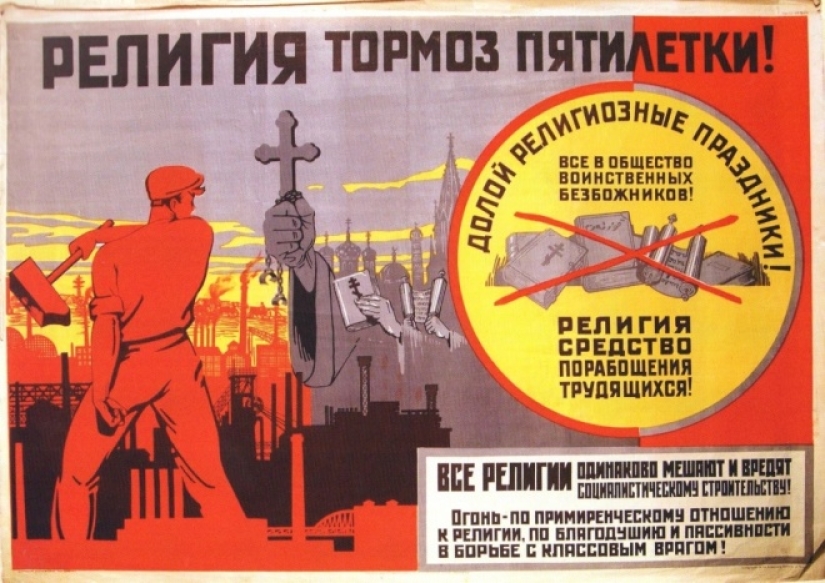
Former Komsomol member Andrey Vashchuk personally had a chance in the 80s to go on duty patrol on Easter night.
Keywords: Easter | Orthodoxy | USSR
Post News ArticleRecent articles

It's high time to admit that this whole hipster idea has gone too far. The concept has become so popular that even restaurants have ...

There is a perception that people only use 10% of their brain potential. But the heroes of our review, apparently, found a way to ...
Related articles
In the days when about the Internet, no one even could not think, and foreign fashion magazines were terribly deficient, for Soviet ...

What do you associate the New year? Tangerines, chime, silver rain on the tree, gifts from Santa Claus and snow Maiden, and of ...

Drifts of snow, frost and sun, winter fun — c Soviet time, little has changed for this time of year. Feel the true atmosphere ...

New Year's is a time to surprise and delight loved ones not only with gifts but also with a unique presentation of the holiday ...